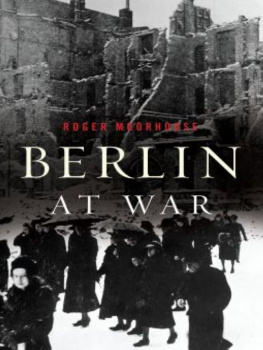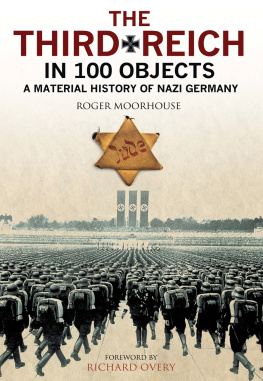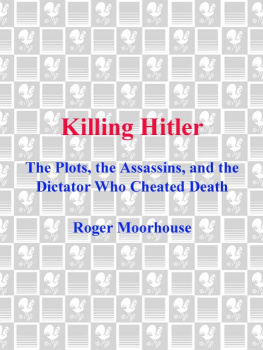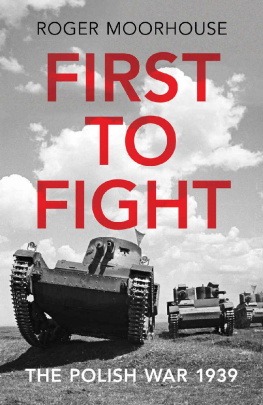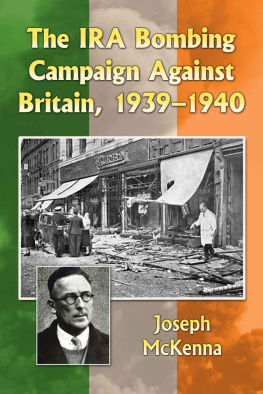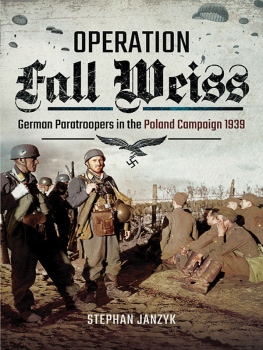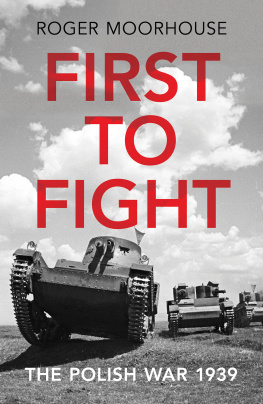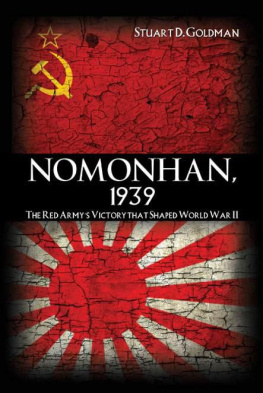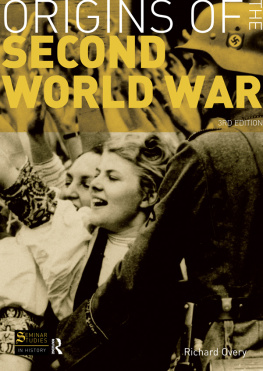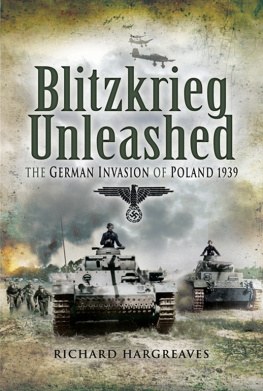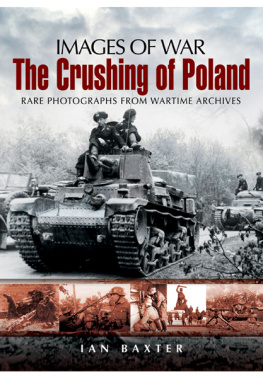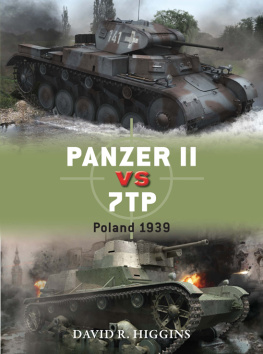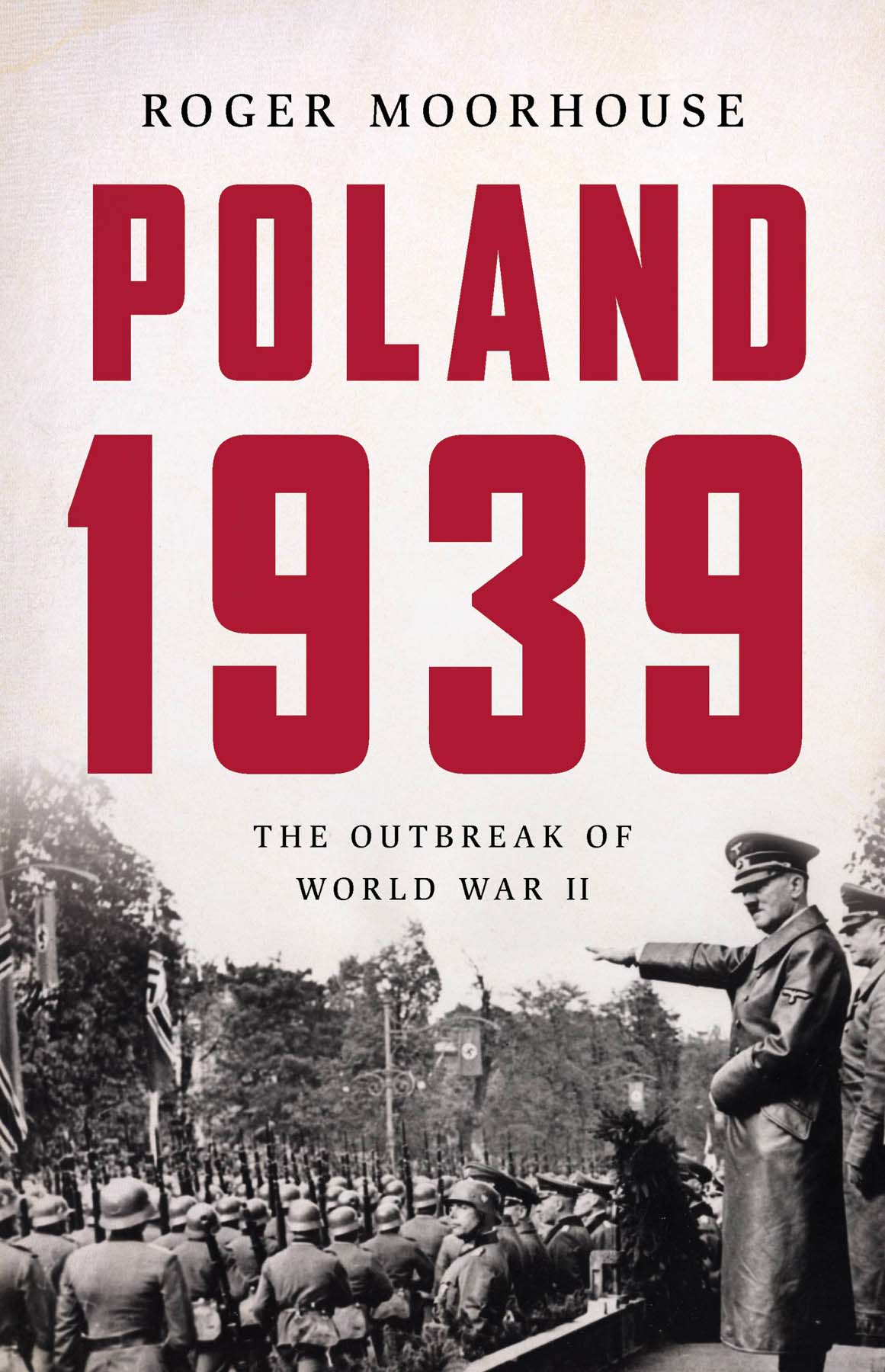Copyright 2020 by Roger Moorhouse
Cover design by Chin-Yee Lai
Cover images AP Photo; YaiSirichai/Shutterstock.com
Cover copyright 2020 Hachette Book Group, Inc.
Hachette Book Group supports the right to free expression and the value of copyright. The purpose of copyright is to encourage writers and artists to produce the creative works that enrich our culture.
The scanning, uploading, and distribution of this book without permission is a theft of the authors intellectual property. If you would like permission to use material from the book (other than for review purposes), please contact permissions@hbgusa.com. Thank you for your support of the authors rights.
Basic Books
Hachette Book Group
1290 Avenue of the Americas, New York, NY 10104
www.basicbooks.com
Originally published in 2019 as First to Fight: The Polish War 1939 by Bodley Head in the United Kingdom
First U.S. Edition 2020
Published by Basic Books, an imprint of Perseus Books, LLC, a subsidiary of Hachette Book Group, Inc. The Basic Books name and logo is a trademark of the Hachette Book Group.
The Hachette Speakers Bureau provides a wide range of authors for speaking events. To find out more, go to www.hachettespeakersbureau.com or call (866) 376-6591.
The publisher is not responsible for websites (or their content) that are not owned by the publisher.
Library of Congress Cataloging-in-Publication Data
Names: Moorhouse, Roger, author.
Title: Poland 1939 : the outbreak of World War II / Roger Moorhouse.
Other titles: Outbreak of World War II
Description: New York : Basic Books, [2020] | Includes bibliographical references and index. Identifiers: LCCN 2019044646 | ISBN 9780465095384 (hardcover) | ISBN 9780465095414 (ebook)
Subjects: LCSH: World War, 19391945CampaignsPoland. | World War, 19391945Poland. | PolandArmed ForcesHistoryWorld War, 19391945.
Classification: LCC D765 .M63 2020 | DDC 940.54/2138dc23
LC record available at https://lccn.loc.gov/2019044646
ISBNs: 978-0-465-09538-4 (hardcover); 978-0-465-09541-4 (ebook)
E3-20200328-JV-NF-ORI
The Devils Alliance: Hitlers Pact with Stalin, 19391941 (2014)
Berlin at War (2010)
For Normanwho planted the seed
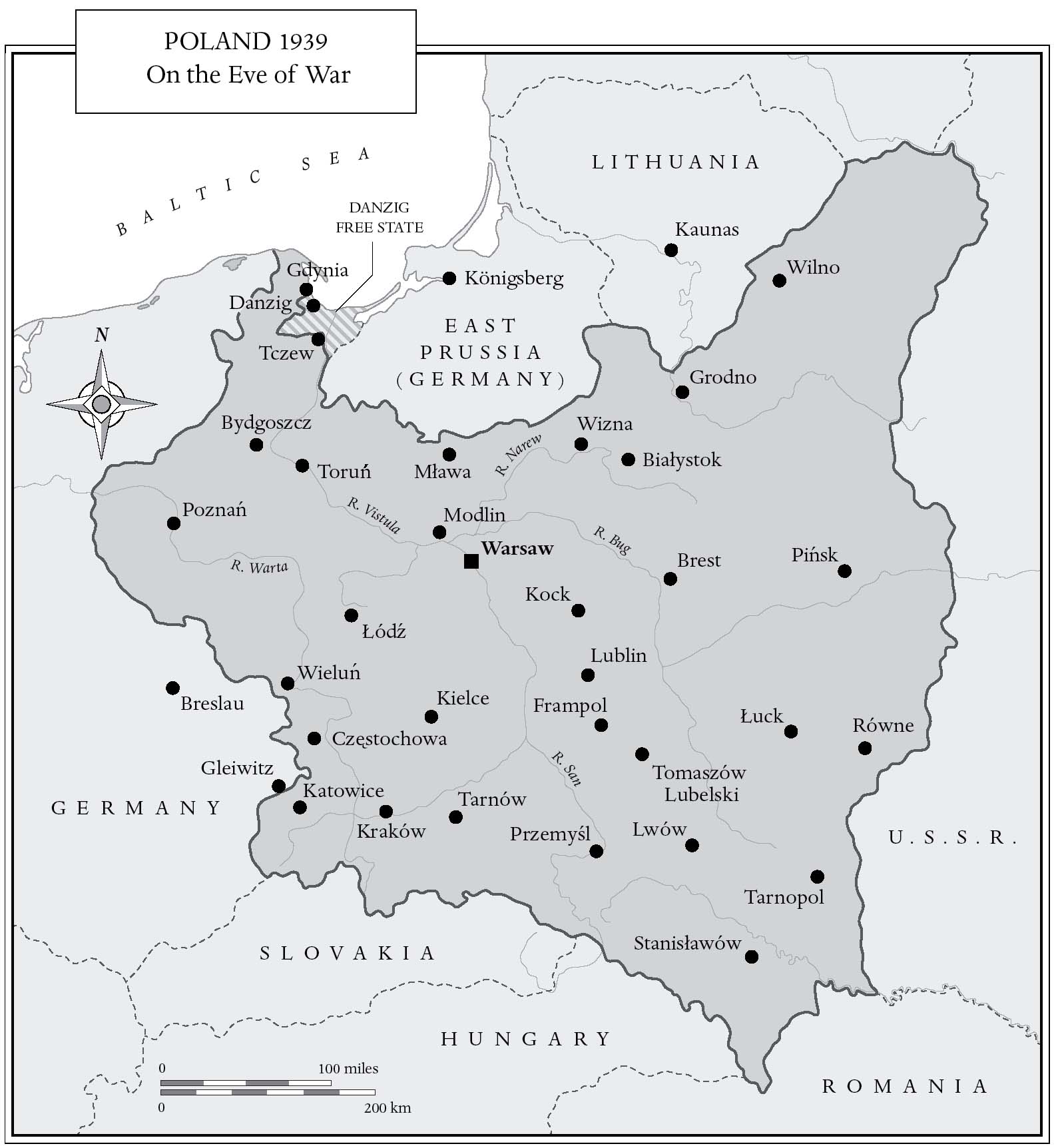
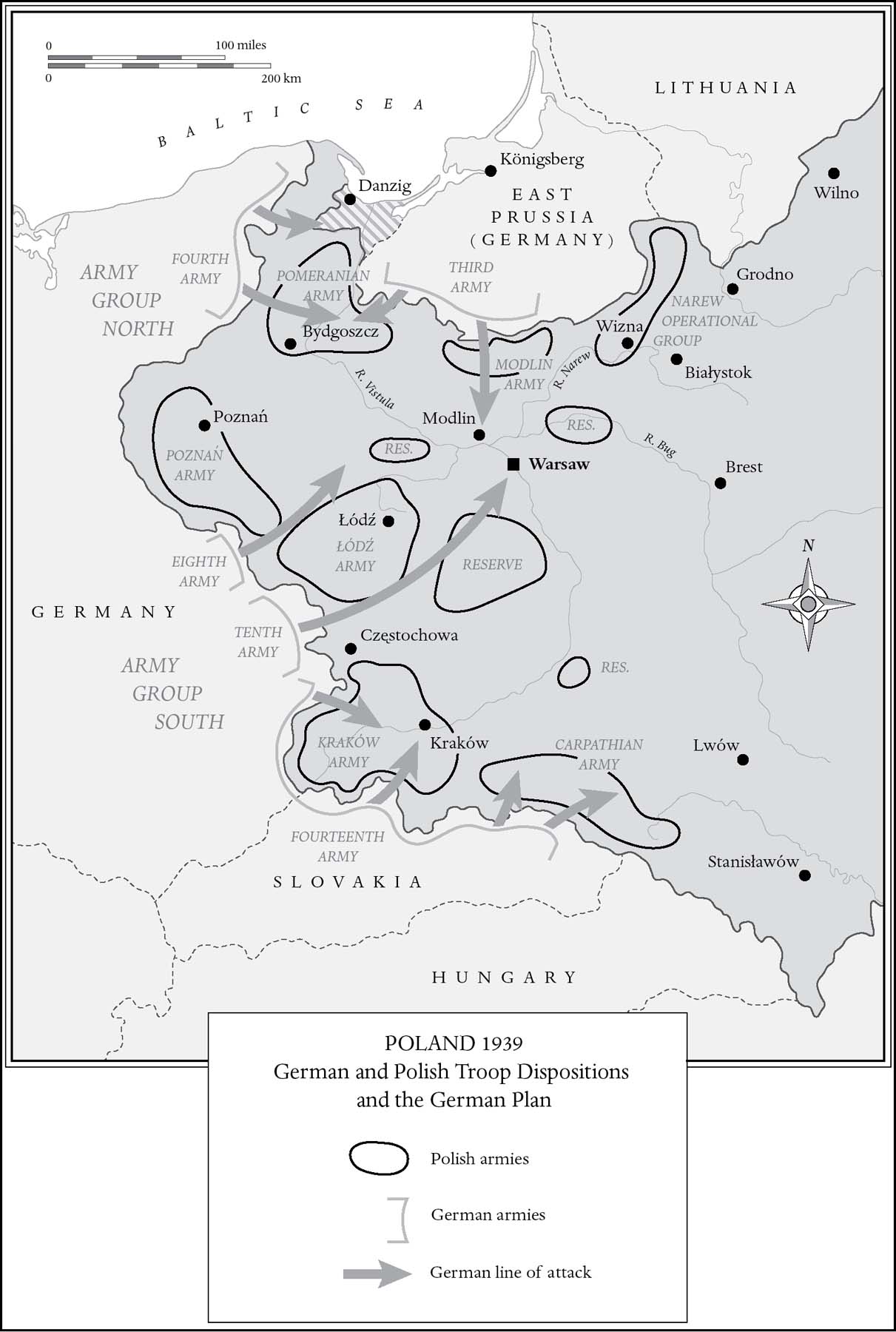
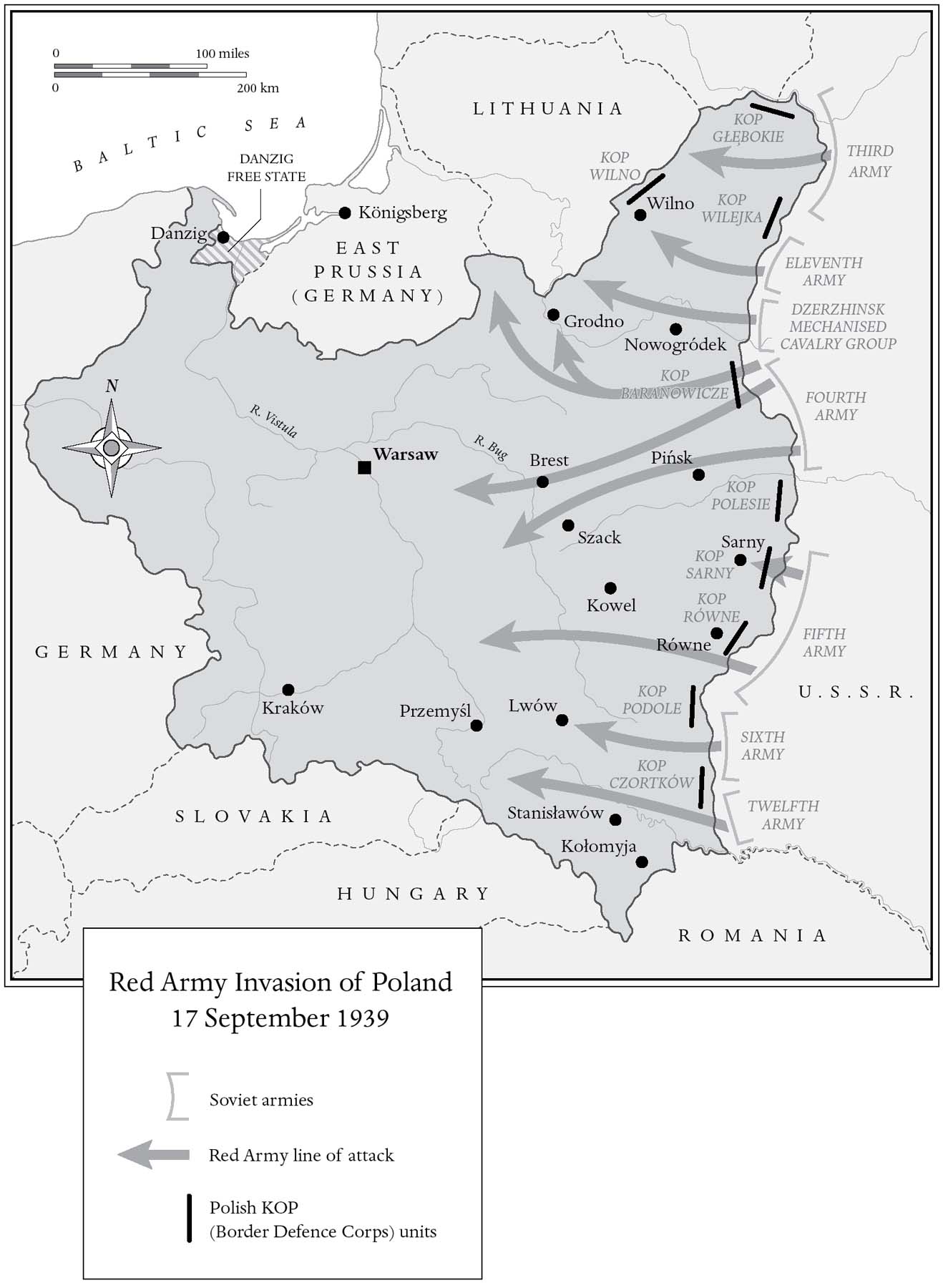
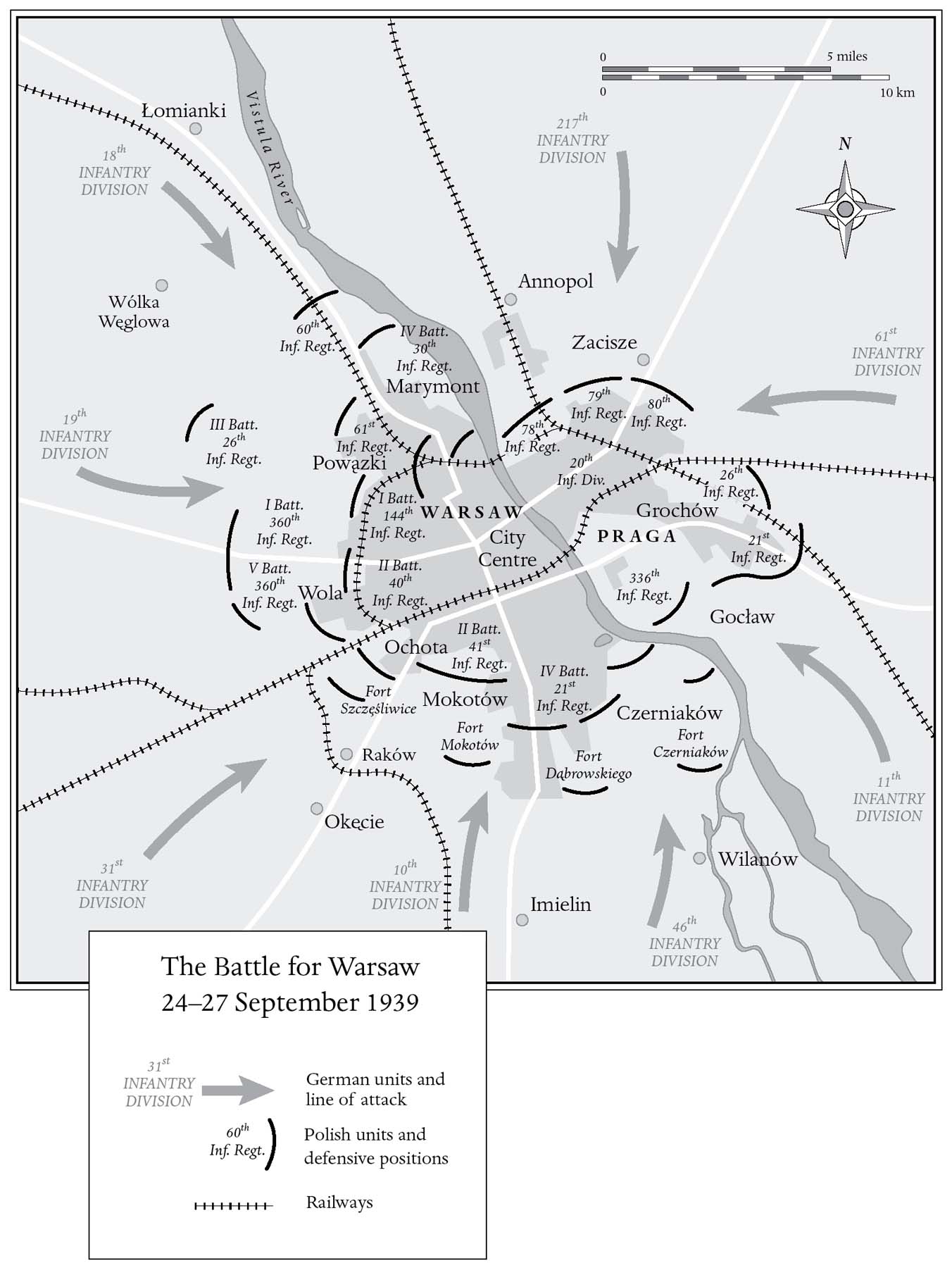
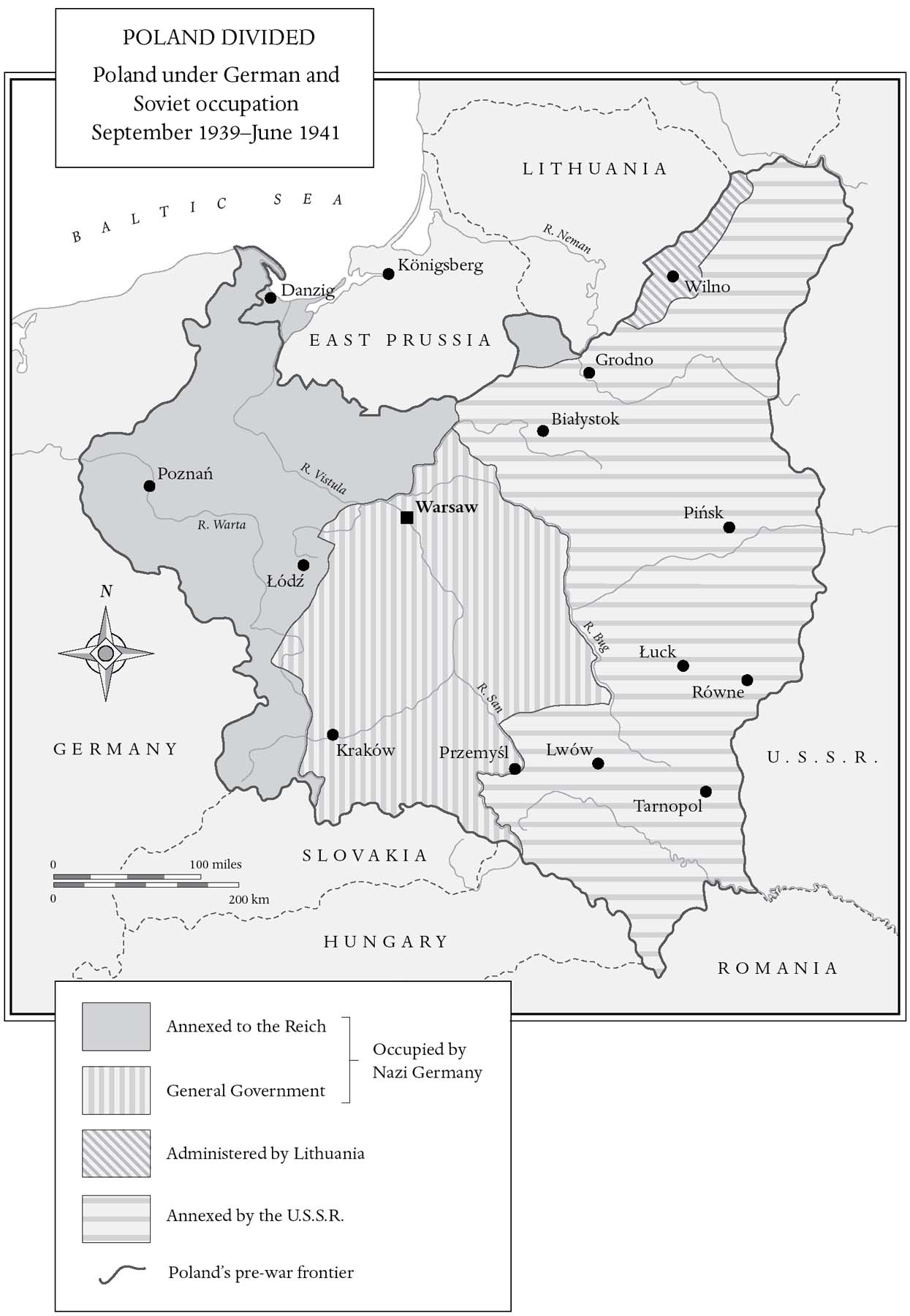
W RITING ABOUT A REGION WITH SHIFTING FRONTIERS AND MIXED populations can sometimes be a challenging task. For simplicity, in this book I have employed a policy of using names appropriate to the period under scrutiny. If the modern name differs from that, then it will be given in brackets at first mention.
So, to take the example of what is now the Ukrainian city of Lviv: in September 1939, it was the Polish city of Lww, so it will be rendered here as Lww (Lviv) at first mention, and simply as Lww thereafter. No political statement is thereby intended.
In addition, where there is an accepted Anglicized formsuch as Warsaw, Brest, or Moscowthen I have naturally used it throughout.
Polish words look complicated, but their pronunciation is consistent. All vowels are of even length, and their sound is best rendered by the English words sum (a), ten (e), ease (i), lot (o), book (u), and sit (y). Most consonants behave in the same way as in English, except for c, which is pronounced ts; j, which is soft, like the y in yes; and w, which is equivalent to an English v. The stress in Polish always falls on the penultimate syllable.
There are also a number of accented letters and combinations peculiar to Polish, such as:
= nasal a, hence Pitek is pronounced piontek
= nasal e, hence czyca is pronounced wenchytsa
= u, hence Krakw is pronounced krakoov
ci = ch as in cheese
= ch as in cheese
cz = a longer ch, as in catch
ch = hard h, as in loch
= English w, hence Kauszyn is pronounced kawooshin
= soft n, as in Spanish maana
rz = soft j, as in French je
si = sh as in ship
= sh as in ship
sz = a longer sh, as in sheer
= as rz, as in French je
= similar to , but harder.
T HE S ECOND W ORLD W AR IN E UROPE BEGAN AT DAWN ON S EPTEMBER 1, 1939.
It shouldnt need saying, of course, but the date of the start of the largest war in human history is a subject that is shrouded in confusion across the globe. Every combatant nation has its own narrative and chronology. In China and Japan, for instance, the war is held to have begun on July 7, 1937, when Japanese and Chinese forces engaged following the Marco Polo Bridge Incident. For Americans, the war started on December 7, 1941, with the Japanese attack on Pearl Harbor; everything before that date is merely a curious, far-off prelude to the main event. Sometimes, such dissenting views are entirely justifiable, dictated by geography and convention; sometimes they are more mendacious. In the Soviet Union (and in its successor state, Russia), for example, the fiction has long been maintained that the Second World War began only with the German attack on June 22, 1941. Stalins earlier invasions of Poland, Finland, and the Baltic States have been skillfully airbrushed from the popular narrative.
Even the British and the Frenchand their respective former empiresare less than entirely clear on the issue. Though both countries declared war on Hitlers Germany on September 3, 1939, after the Germans failure to withdraw from Poland, they did nothing to aid their ally, shamefully leaving Poland to its fate. Thereafter, for the people of Britain and France, nothing much happened until German forces smashed westward across the French border in May 1940. The British called that intervening period the Phoney War; the French, the Drle de Guerrethe funny war.
But there was nothing funnyor phonyabout the war that Poland fought in the autumn of 1939. As the sun rose on September 1, Hitlers forces crossed the Polish frontier from the north, west, and south, hurtling forward in their tanks and trucks and on foot, while the Luftwaffe scoured the skies, bombing and strafing seemingly with impunity. After little more than two weeks, with Polish armies in disarray and lacking any assistance from their Western allies, the coup de grce was delivered by Hitlers new confederate, Stalin, and the Red Army invaded from the east on September 17. As German and Soviet forces met on Polish soil and declared their eternal brotherhoodconveniently forgetting the preceding years of rabid antipathyPoland entered a new totalitarian dark age: a world of persecution, misery, and death. By the end of the Second World War, one in five Poles would be dead.


